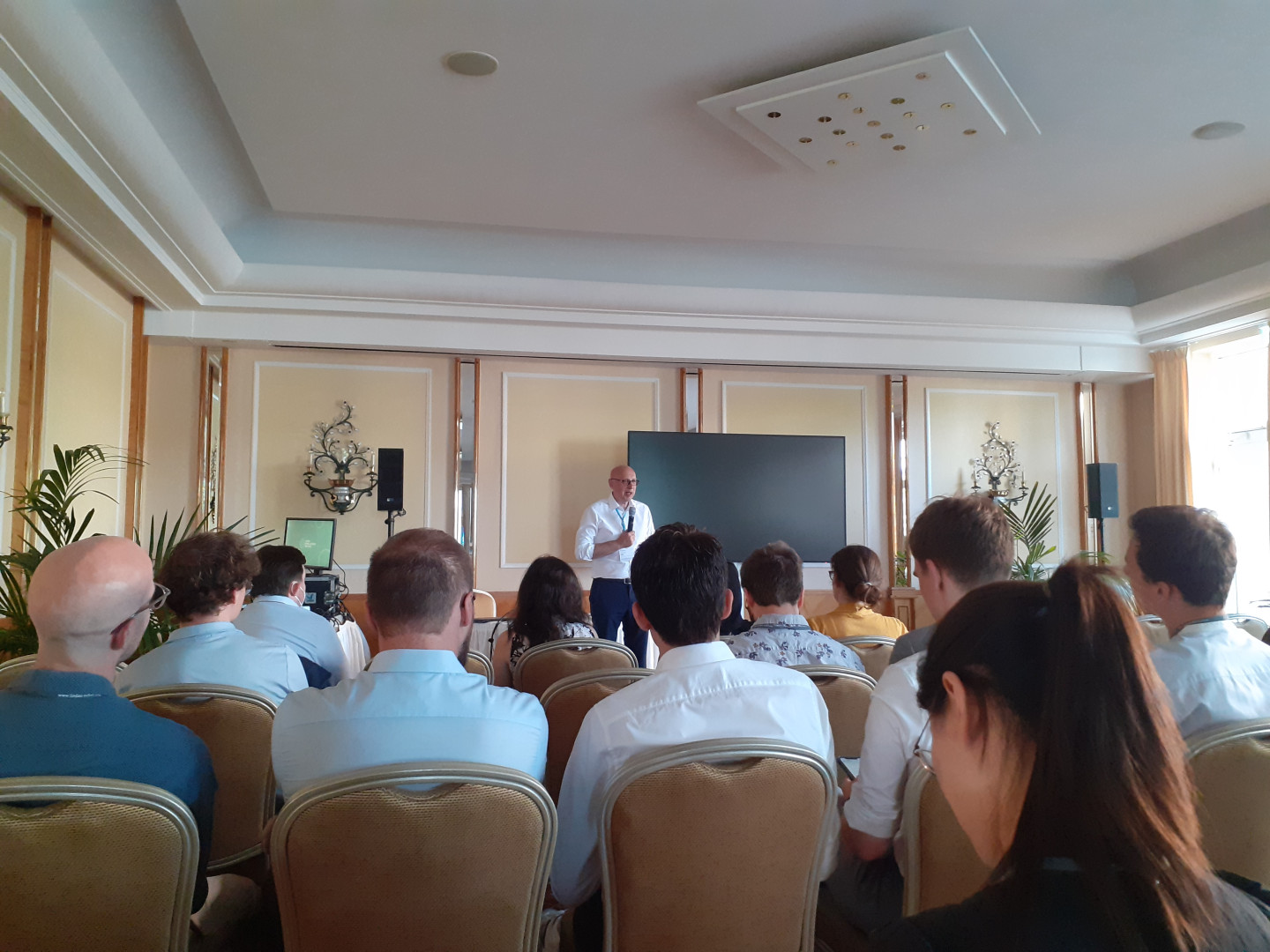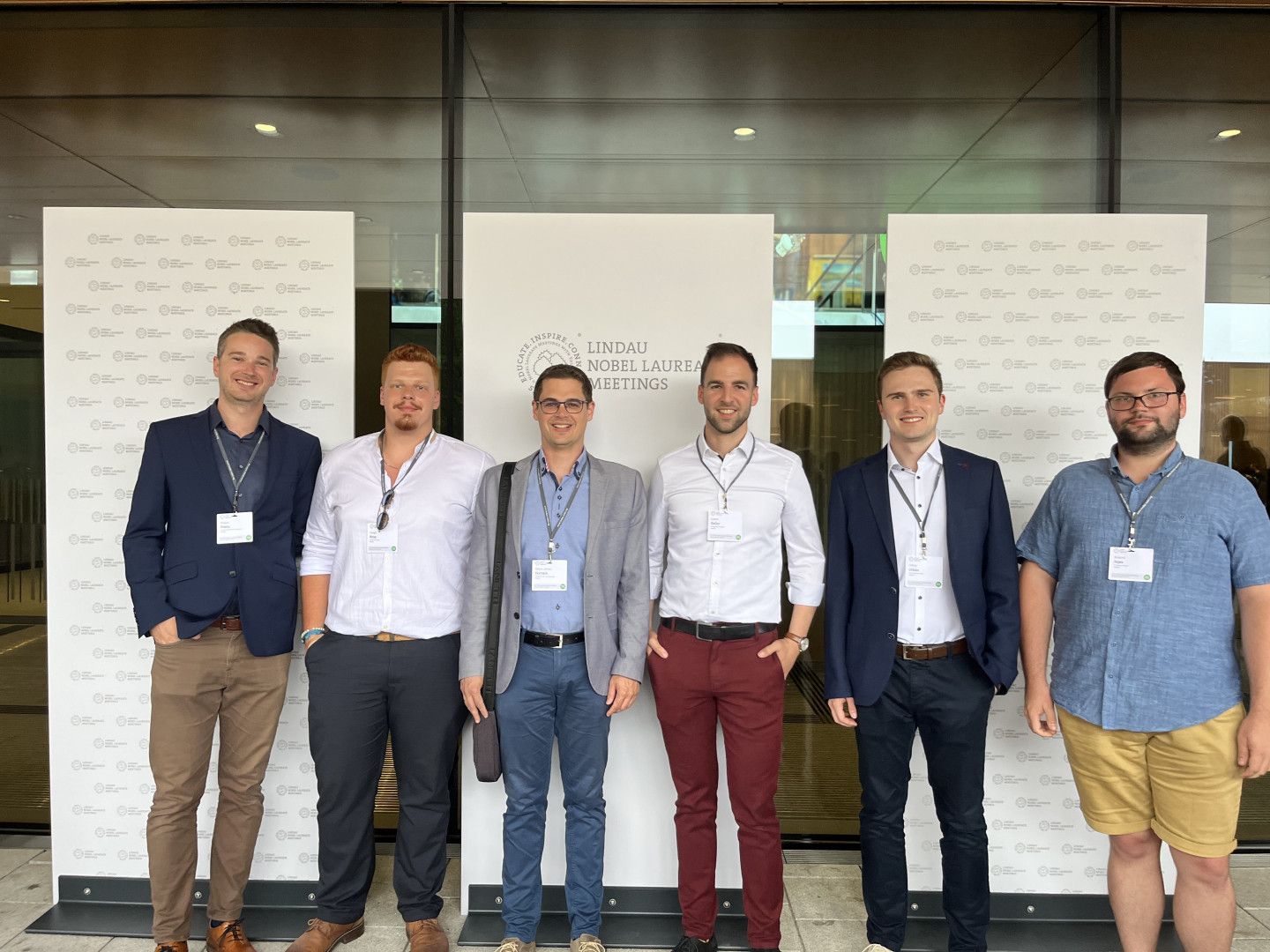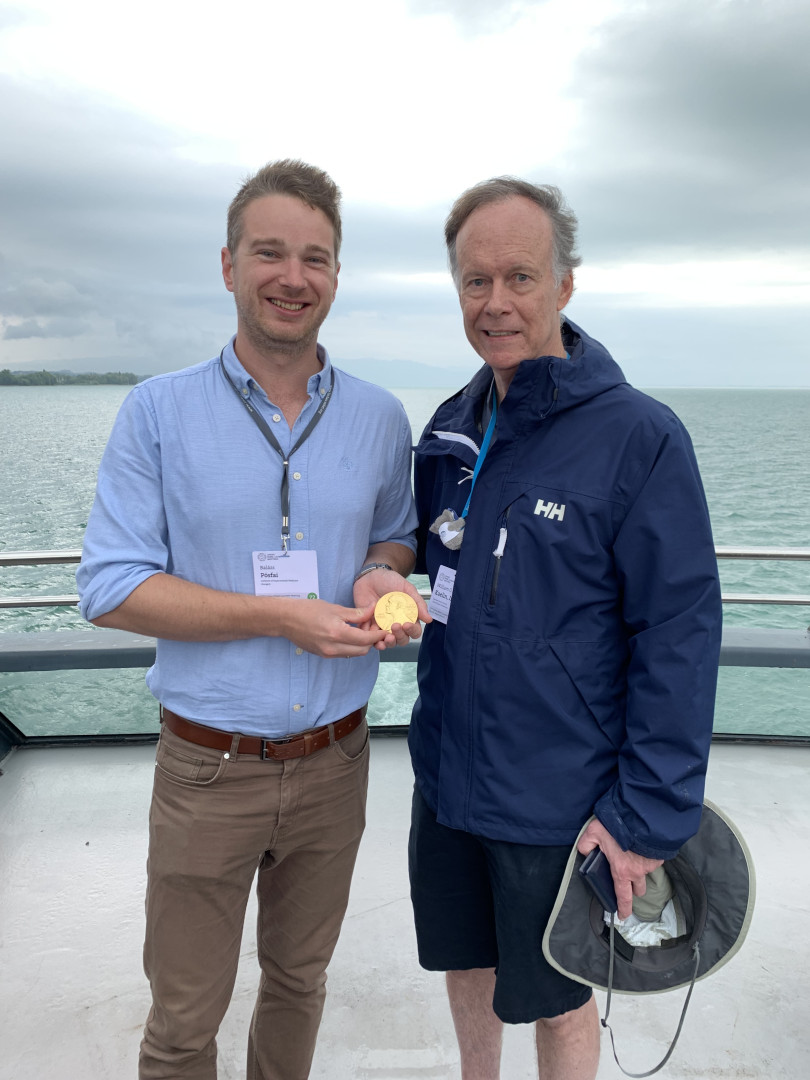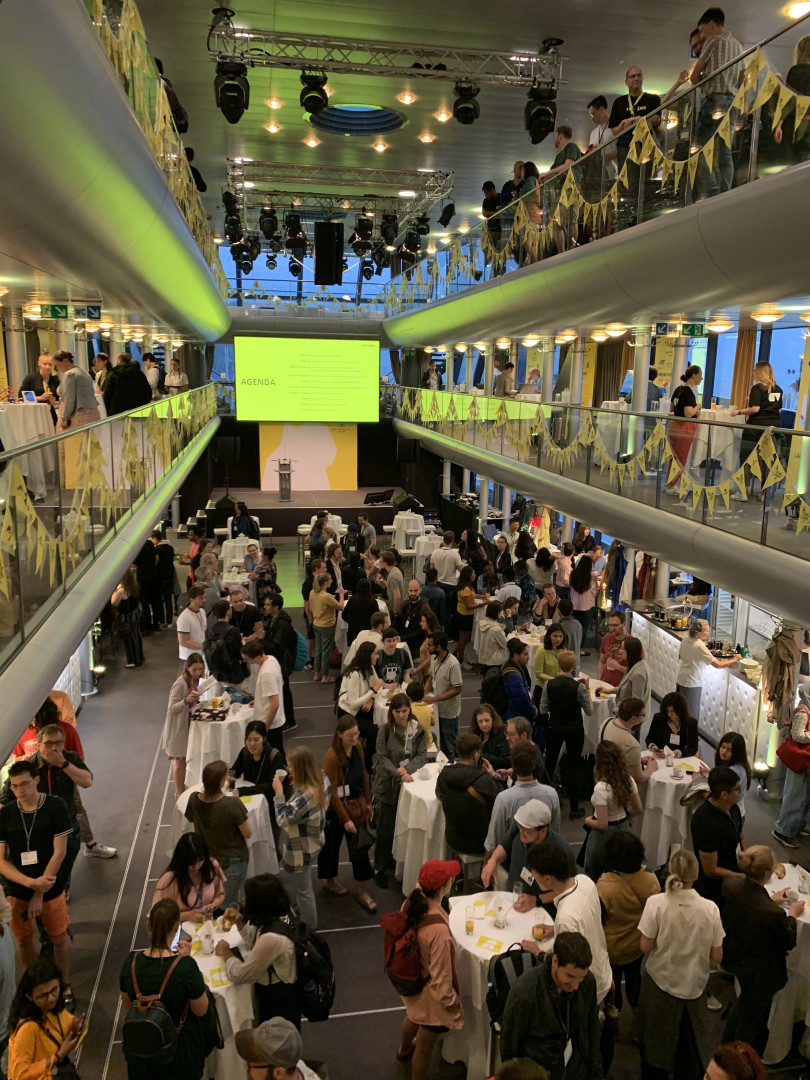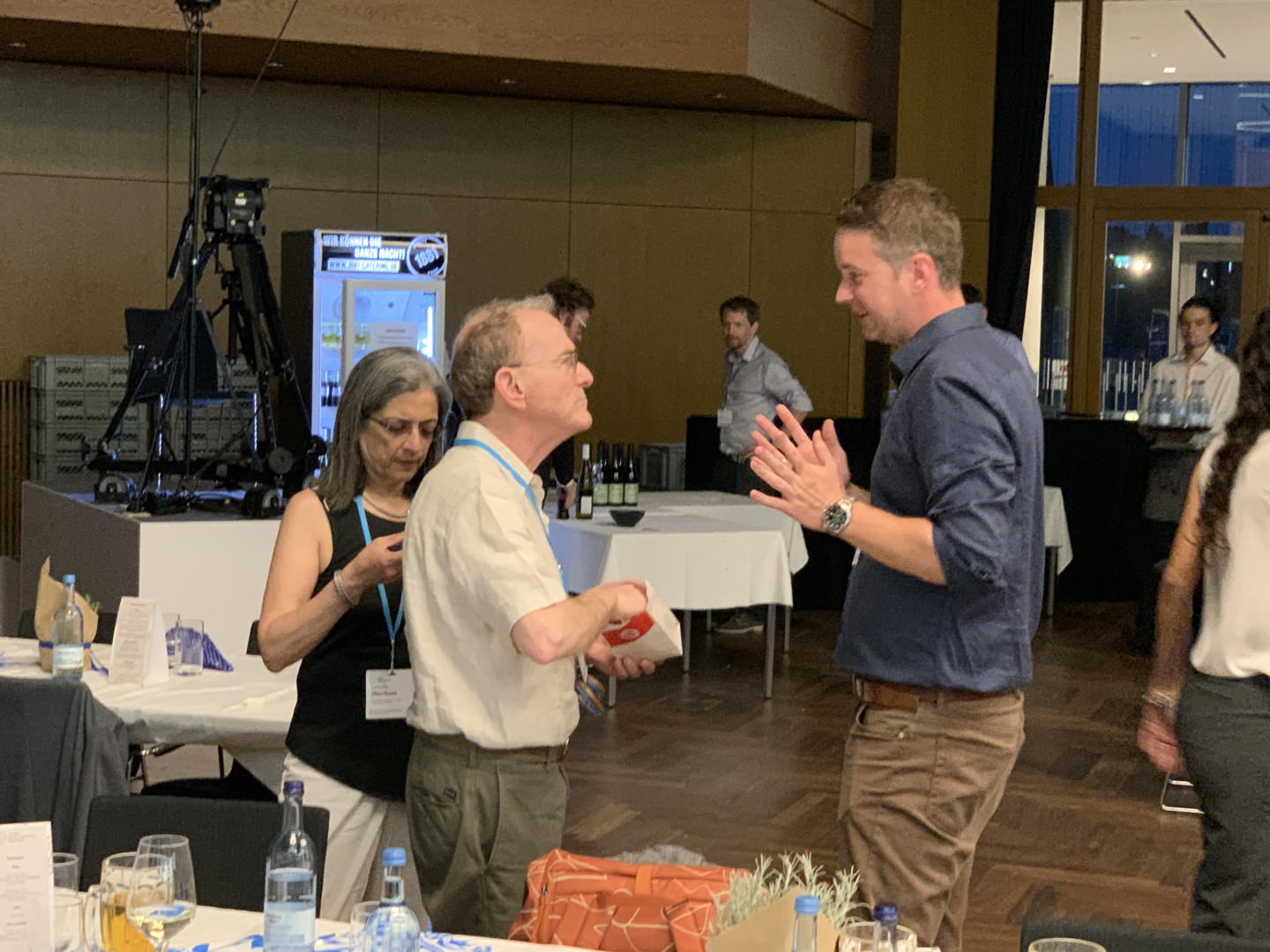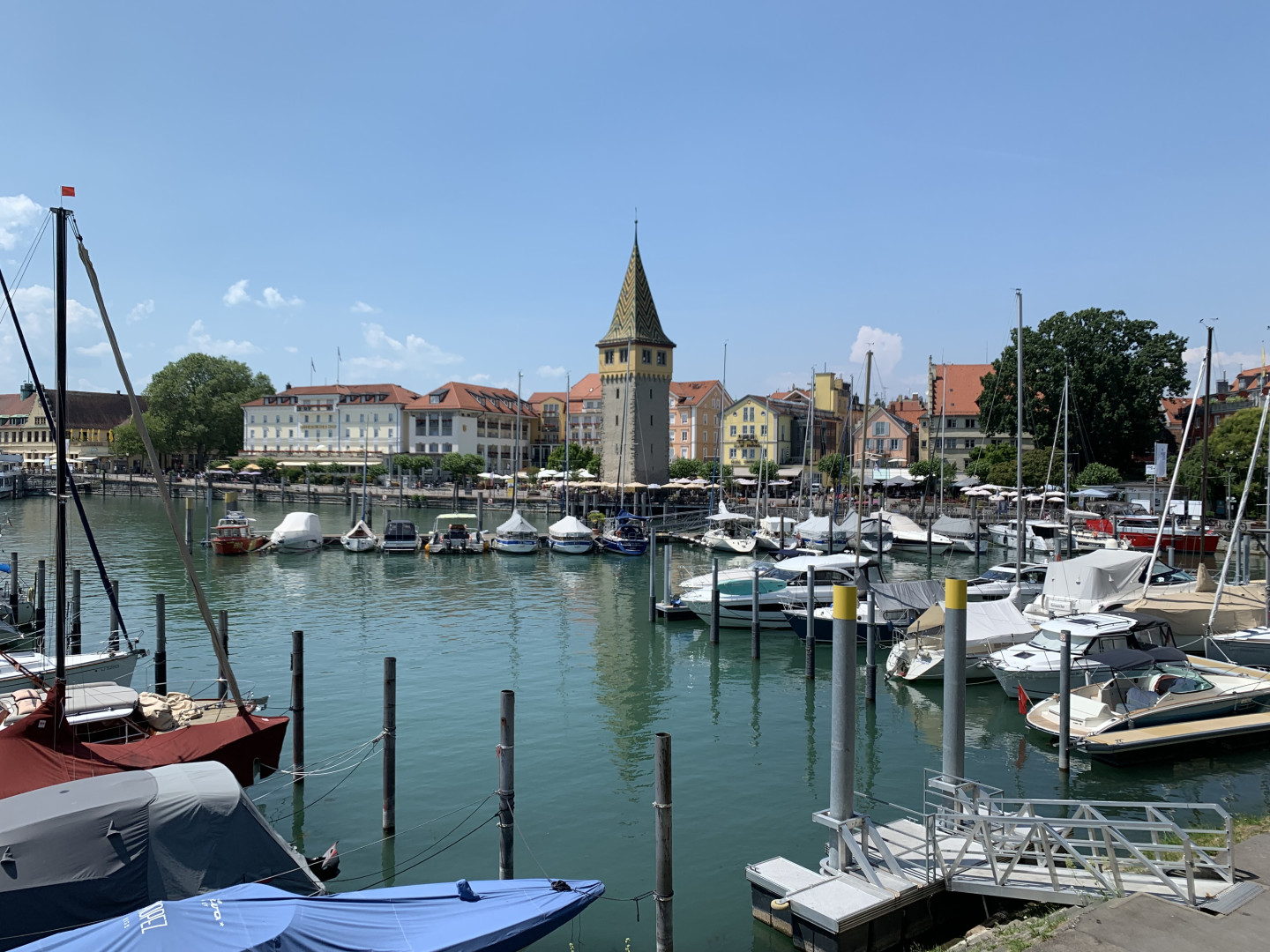In the company of Nobel Laureates in Lindau
The conditions for participation at the Nobel Prize-winning meeting in Lindau have not changed since its inception. Only Nobel laureates are invited, and those under the age of 35 who meet the strict criteria and are selected by the committee. Balázs Pósfai was among those selected.
At the foot of the Alps, on the border of three countries, there is a glacial lake, slightly smaller but much deeper than Lake Balaton, fed by the Rhine and flowing into the Rhine. Its north-western, finger-shaped extension is called Überlingen or Upper Lake, its south-eastern part Zelli or Lower Lake, the whole body of water is called Bodensee by the Germans, and we call it "Boden-tó" if we want to comply with the spelling rules but we prefer to call it "Bodeni-tó" for ease of pronunciation.
The official name is Lake Constance. I don't know whether the town on its shore or the lake was named first but the previous was the site of the infamous synod where the German-Roman Emperor and Hungarian King Sigismund broke his promise given to János Husz and he was burnt at the stake on 6 July 1415.
However, the town we are interested in is Lindau, founded on an island on the southeastern part of the lake nearer to us, shaped like a letter of lime tree and once full of lime trees, saved in the name of the town connected to the mainland by two bridges and which has long since outgrown the island. In addition to its fascinating and varied history, the unrivaled beauty of the old town, and its many tourist attractions, it has a special event, founded in 1951 and held annually since 1952. This is the Lindau Nobel Laureate meeting, many of whose programs are available to the public either live or after the meeting.
Three Nobel Prize-winning disciplines - physics, chemistry, and life sciences/medicine - alternate as the central theme, an economic science every three years and an interdisciplinary meeting every five years.
Since 1953, Nobel laureates have been joined by young scientists, who now number around 35 000. Once here, the Lindau Alumni Network is a permanent part of the scientific dialogue that started in Lindau. Unlike other conferences, once you've been here, you can't apply again. You can only come if you are invited, and for that, you need a Nobel Prize.
But how does one of the famous sayings of Napoleon, who played a role in Lindau's history, go? Every soldier carries a marshal's baton in his pocket!
Balázs Pósfai was in Lindau for the first time.
- The very fact that you were there deserve congratulations! Who else represented the country this year besides you and what support and recommendations did they receive?
- Among us were university adjunct professors, postdocs, residents, and undergraduate students. We were nominated either by the Hungarian Academy of Sciences or by the National Foundation for Biomedical Sciences, the maintainer of the National Academy of Sciences' talent management program. In my case, my group leader, Ádám Dénes, was also extremely instrumental in getting me to this event.
- How many of you were there?
- As I understood it, we were originally invited eight from Hungary. In the end, there were only six of us, all boys, because two ladies had to cancel their participation for personal reasons. Since the personal part of the last medical-biology meeting was canceled due to COVID, the people invited at that time were automatically allowed to come if they wanted their place. However, a lot can change in a young person's life in three years, so many of the old invitees did not take up the opportunity. Even so, this year it was "harder" to get an invitation.
The meeting was attended by 39 Nobel laureates and almost 600 young researchers from 89 different countries. That's a lot of 600 young people, so even though the meeting lasts for six days, it's impossible to talk to everyone. As the young people represented all branches of medicine and, of course, the Nobel laureates' research topics are extremely diverse, the meeting was not, in my opinion, about building scientific contacts in the classic sense or finding potential collaborations.
- That alone must have been difficult, as you could not know in advance who you would meet. When you were faced with this in practice, what was your goal?
- To get to know the mindset of my fellow researchers abroad and Nobel Prize winners!
Of course, the two could be linked, so it was very enlightening to exchange ideas with Stefan Hell, the creator of the concept of the STED microscope that I use. But I also received extremely useful, though sometimes perhaps only for me, ideas from Martin Chalfie, Randy Schekman, and Harold Varmus. Just as exciting was the interaction with young people from different countries!
- How did your day go?
- Every morning from 7 am, you could attend training sessions and a small group of partner breakfasts, to which one or more Nobel laureates were invited to discuss certain topics. The scientific program started at 9 am, usually with two or three Nobel Lectures of 30 minutes each.
- Did many students ask questions at these lectures?
- At that time, there was no time for questions, but the 45-minute Agora Talk (in ancient Greek, "agora" was the name of the main public arena, the main square or marketplace), which sometimes featured several Nobel laureates and devoted considerable time to questions.
- You mentioned that you might be able to make a presentation. Where has a young researcher had such an opportunity?
- In the Next Gen Science session, you could apply to give a 6-minute presentation, but my abstract was not selected.
There were also panel discussions lasting an hour and a half, where 3-4 Nobel laureates were joined on stage by 2-3 young people, and the audience was always actively involved in the discussion. Topics such as the impact of climate change on our health or the leveling of perceived or real inequalities in the scientific career were discussed.
- Let's not go into the latter, it's such a sensitive subject. . .
- There was a minor clash in one of the sessions, but for me, it is not memorable because of that, but because it was my only 'disappointment' of the whole meeting. The discussion of these topics was largely along the lines of platitudes that were no different from the conversation of any group of friends who were not Nobel laureates.
- What was the most exciting for you?
- It was the pre-registration event Laureate Lunch or Science Walk, where 10 young people could go for lunch or a walk with a Nobel Laureate of their choice. Unfortunately for me, the Nobel Laureate of my choice, Thomas Südhof, was one of the 3 laureates who, despite his best intentions, could not make it to Lindau, so I sadly missed out on this opportunity.
- So you didn't get to talk to the Nobel laureate in person?
- I could. Even without this, there were plenty of opportunities to engage in conversation with them during coffee breaks and meals, because they were as accessible as the young people involved.
There were also 2 thematic dinners where the organizers introduced us to the cuisine of the region and their culture. This year one was organized by the state of Indonesia and one by the province of Bavaria. At the dinners, the Nobel laureates were strictly spread out, so that the earliest arrivals could snatch seats close to them.
- Based on the number of occasions listed so far, the time, and the ratio of Nobel laureates to young researchers (1:15), everyone did indeed have the chance to have at least brief conversations with several, even if not all of those they would have liked to. What else was on the day's program?
- Once a day, but often in 8 parallel venues, an hour and a half was devoted to what was called "Open Exchange", when a single Nobel laureate sat in a room with an audience of 10-60 people and, without any prior introduction, topic discussion or even a moderator/discussion leader, chatted amiably about any topic that came up.
- It must have been quite interesting. ...
- As everything and entirely in the hands of the Nobel laureates, these one-and-a-half hours were very different. There was one who first talked about his own life story for almost 40 minutes, one who began by asking questions of the audience, and one who devoted the entire time to questions from the audience.
- What did you take home from Lindau?
- A lot of experiences and thoughts to consider. All in all, it was a great experience, a unique and motivating experience. I stress that these are now less strictly related to science, but were more attitude-forming for me. While I have also made some contacts that seem useful for future collaborations, I found it more valuable to learn about the circumstances that have shaped young people's scientific careers so far and the drivers of their ambitions for the near future.
- What did you find interesting or what surprised you, about the Nobel laureates?
- It was interesting to see that the impact of the Nobel Prize seems to have made some people consider their scientific careers as finished, while some may have worked even harder since then.
- Just recently in a Nature article, you could read something similar about the further achievements of Nobel laureates and Lasker laureates. The main reason given for the greater scientific activity of Lasker laureates is that their average age is significantly lower.
What did you find particularly important from what you heard in Lindau?
- I was confirmed that, an idea is not necessarily crazy just because it goes against everything we know, and that if it is based on the right theoretical grounds it is worth doing everything to unravel it. It was also incredibly exciting to hear from a Nobel Prize-winning researcher how his glorious research had been stalled for 15 years, with constant failures, but his persistence had led to results.
Last but not least, there were good examples of balancing work and family life and maintaining extraordinary humbleness.
- What advice would you give to those who have not yet been to Lindau?
- Although there are many recordings of the conference available, I would still advise my contemporaries who meet the selection criteria to do their best to come to Lindau.





